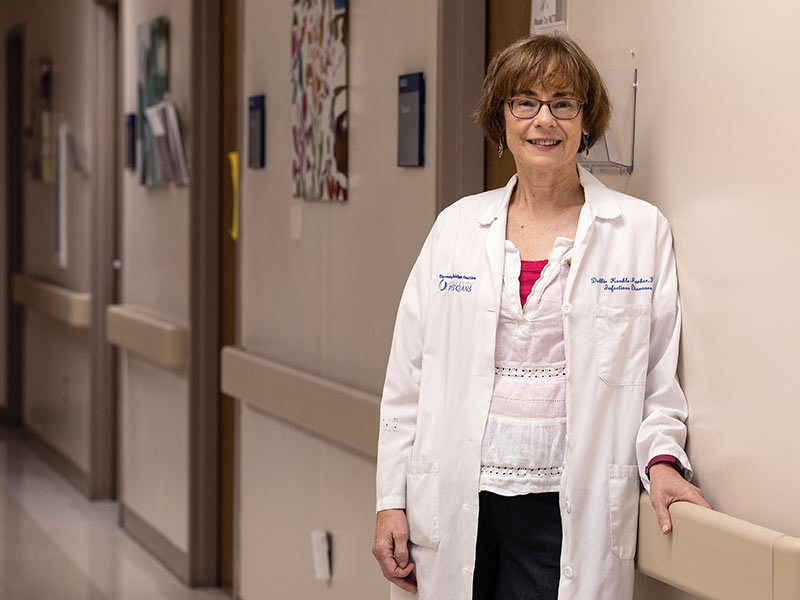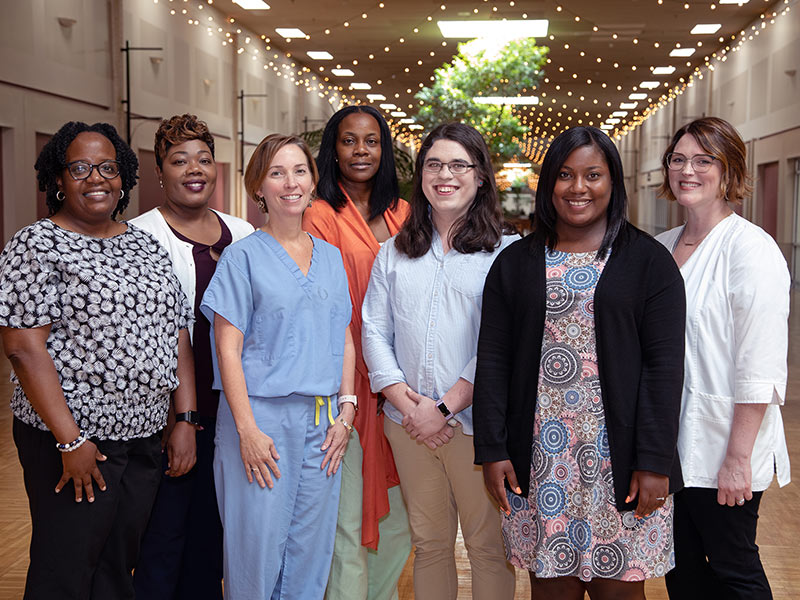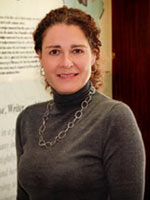UMMC to expand HIV research

The University of Mississippi Medical Center, along with partner institution the University of Alabama-Birmingham, received a seven-year, $7 million award from the National Institutes of Health to continue and expand their work studying HIV in the Southeast.
The award is part of the fusing of two legacy studies of HIV: the Women’s Interagency HIV Study, or WIHS, and Multicenter AIDS Cohort Study, or MACS, into the MACS/WIHS Combined Cohort Study, or MWCCS.
“WIHS started with a focus on understanding HIV in women and the associated comorbidities,” said Dr. Deborah Konkle-Parker, professor of medicine in the Division of Infectious Diseases, who has led the WIHS site in Jackson since the study site’s creation in 2013.
Since 1993, WIHS has enrolled nearly 5,000 women, including more than 200 in the Jackson and Birmingham areas, with and without HIV in order to study the progression of HIV. “The focus now is on people who are living and aging with HIV,” Konkle-Parker says.
While people living with HIV now have life expectancies nearly as long as those without, there are still a number of health challenges. People with HIV are at increased risk of other chronic health conditions.
Like other viruses, HIV can lead to a state of chronic inflammation, where the body produces cells and proteins to fight off an infection. This increases the risk of heart disease, kidney disease and cancers. Cardiorenal disease is more prevalent among older adults with HIV than those without, Konkle-Parker said.
“It’s also very important to understand how HIV treatments impact lives, as well as the double impact of both HIV infection and long-term treatment with antiretroviral therapy,” said Konkle-Parker, who has more than 20 years’ experience in HIV care. “These findings can impact the care of people in the United States and around the world.”
The reorganization of the MWCCS will also allow the study to focus on participants in the geographic areas where HIV is now more prevalent.
“In the last decade, we have seen decreases in HIV transmission and mortality in the northeastern and western United States, but increases in the south,” Konkle-Parker said.

The National Institute of Allergy and Infectious Diseases, part of the NIH, previously funded the separate studies. The National Heart, Lung, and Blood Institute’s HIV/AIDS program is supporting the new incarnation. In a blog post for HIV Long-Term Survivors Day, Dr. Gary Gibbons and Dr. Anthony Fauci, directors of the NHLBI and NIAID respectively, note the need for renewed and refocused research goals.
“Biomedical research has brought us a long way since June 1981, when the first cases of the disease that would later become known as AIDS were reported. At the time, the median survival of a person with AIDS was only one to two years,” they wrote. “Today, HIV survival can be measured in decades and even near-normal life expectancies.”
Since WIHS' formation in 1993, data collected from the study in San Francisco, Los Angeles, Chicago, two sites in New York City, Washington D.C., and in the southern sites in Miami, Atlanta, North Carolina and Birmingham/Jackson, has contributed to help researchers learn more about HIV’s effect on women. In particular, studies suggest that as HIV treatment improved, rates of AIDS-related cancer among women with HIV decreased, but non-AIDS-related cancers increased. Women with HIV also have higher rates of cervical cancer.
MACS started in 1984 and included more than 7,000 men who have sex with men, living with and without HIV. By following men in Chicago, Los Angeles, Pittsburgh, and the Washington, D.C./Baltimore area, MACS has made many contributions to HIV research, but its focus on men contributed to a substantial gap in our understanding of HIV.
“The findings from MACS couldn’t be generalized for women,” Konkle-Parker said.
WIHS and MACS both follow-up with patients every six months and will continue to do so on an annual basis as a combined study. The combined cohort will facilitate data and specimen sharing between research groups.
The MWCCS plans to recruit additional participants. The legacy sites, those that were part of their original studies at their inceptions, may continue to focus their efforts on a single-sex population, though some sites may be open to both male and female enrollees.
The main study objectives include identifying biomarkers of increased risk for chronic disorders in people living with HIV; determining how antiretroviral therapy affects other medical conditions; developing more effective interventions and treatments; and learning how chronic immune activation and inflammation due to HIV may affect other health conditions.
Researchers do not plan to begin new recruitment for the MWCCS until 2020, but WIHS is finishing its last exam period as an individual cohort. In the meantime, large datasets and a large specimen repository are available for investigators wanting to conduct research on the impact of HIV and chronic inflammation in many areas, including psychosocial, cardiovascular, aging, neurocognitive, renal, biomarker, epidemiology, gynecology, liver, cancer, microbiome, metabolic, pulmonary and pharmacology.

“By combining the two cohorts, we will be able to ascertain clinical outcomes among HIV patients that in general occur more frequently and earlier than in the general population,” Dr. Mirjam-Colette Kempf, a professor at the UAB School of Nursing and a principal investigator of the MWCCS site at UAB, said in a news release. “Using longitudinal data, we can study co-existing medical conditions and how they manifest themselves differently among people living with HIV in comparison to HIV-negative populations.”


